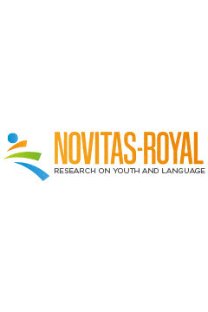The Effect of the Relationship between Learning and Teaching Strategies on Academic Achievement
___
Alptekin, C. (2007). Yabancı dil öğrenimde strateji seçimi: Doğal ve eğitsel dil edinimi. Eğitimde Kuram ve Uygulama, 31 (1), 4-11.Bekleyen, N. (2006). Ġngilizce öğretmen adaylarının dil öğrenme stratejileri kullanımı. Dil Dergisi, 132, 28-37.
Brown, H. D. (2007). Principles of language learning and teaching. USA: Pearson Education.
Chamot, A. U. (2004). Issues language learning strategy research and teaching. Electronic Journal of Foreign Language Teaching, 1 (1), 14-26.
Ehrman, M., & Oxford, R. L. (1990). Adult language learning styles and strategies in an intensive training setting. The Modern Language Journal, 74 (3), 311-327.
Hişmanoğlu, M. (2000). Language learning strategies in foreign language learning and teaching. The Internet TESL Journal, VI (8).
Lessard-Clouston, M. (1997). Language learning strategies: An overview for L2 teachers. The Internet TESL Journal, 3 (12).
O’Malley, J. M., Chamot, A. U., Stewner-Manzaranes, G. Russo, R. P., & Küpper, L. (1985). Learning strategy applications with students of English as a second language. TESOL Quarterly, 19 (3), 557-584.
Oxford, R. L. (1990). Language learning strategies: What every teacher should know? Boston: Heinle & Heinle.
Oxford, R. L., & Crookall, D. (1989). Research on language learning strategies: Methods, findings and instructional issues. The Modern Language Journal, 73 (4), 404-419.
Yapıcı, G. E., & Bada, E. (2004). Language learning strategies of EFL learners. Enstitü Dergisi, 13 (2), 233-242.
- ISSN: 1307-4733
- Yayın Aralığı: 2
- Başlangıç: 2007
- Yayıncı: -
Metaphorical Conceptualizations of an Adult EFL Learner: Where Old Concepts are Impregnable
Classroom Interaction Mediated by Gender and Technology: The Language Laboratory Course
Nematullah SHOMOOSSI, Mohammad AMOUZADEH, Saeed KETABI
Error Correction: An Indication of Consciousness Raising
The Effect of the Relationship between Learning and Teaching Strategies on Academic Achievement
ARİF SARIÇOBAN, Aysel SARICAOĞLU
The Role of L1 in L2 Acquisition: Attitudes of Iranian University Students
